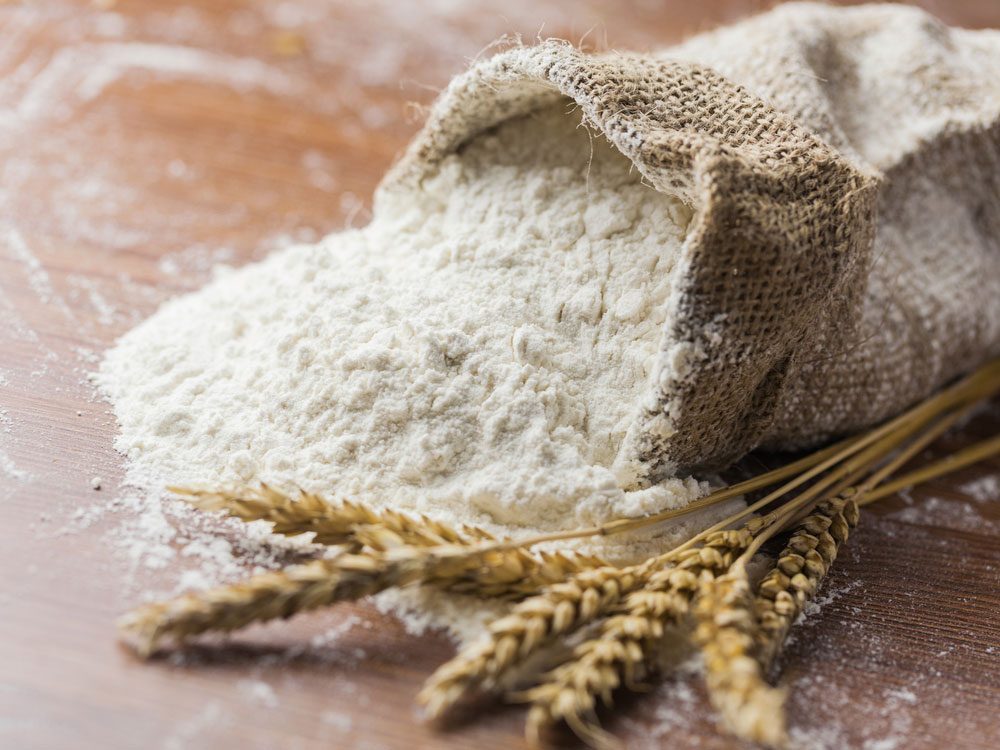
1. Raw flour can carry E. coli
In unwelcome news for cookie-dough fans, flour was recently confirmed as the source of a serious E. coli outbreak in the United States in 2016. Certain strains of these bacteria can be toxic, causing stomach cramps, bloody diarrhea, vomiting and, in extreme cases, kidney failure. Scientists knew E. coli could thrive in undercooked meat, but they were surprised to find the bacteria in dry flour. To be safe, health authorities now recommend washing your hands thoroughly after handling flour and abstaining from eating raw or unpasteurized dough.
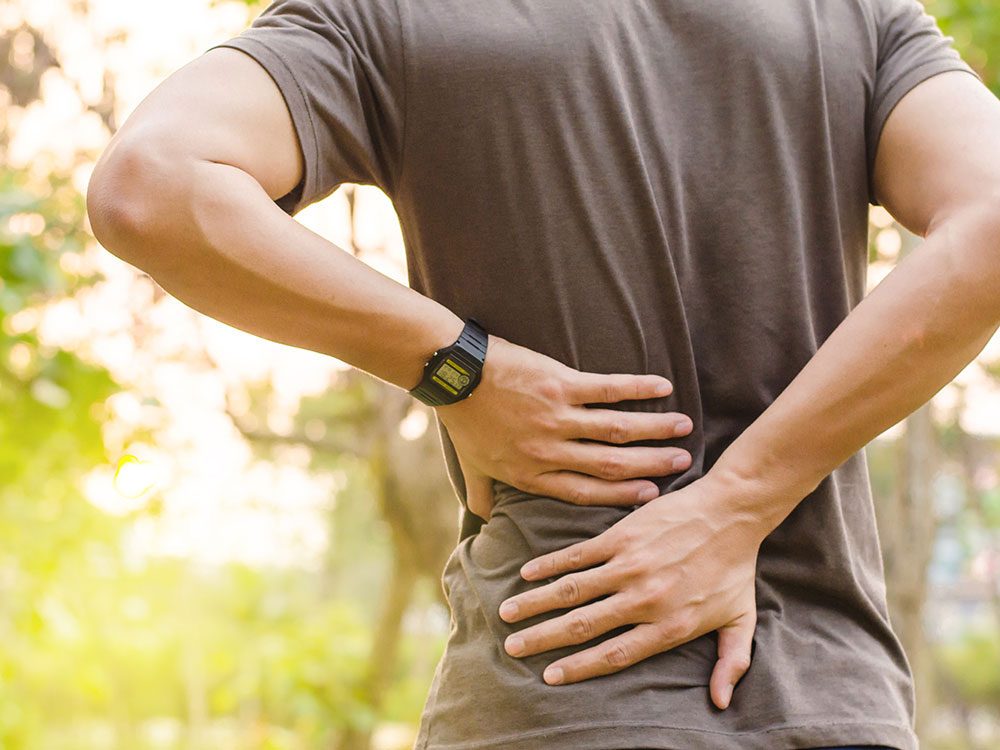
2. Back pain could stem from undetected fractures
Tiny spinal fractures caused by osteoporosis often evade discovery but can nevertheless hurt, according to a study published recently in the Journal of Bone and Mineral Research. Nearly 4,400 older men were followed for over four years, during which time 28 were diagnosed with fractures in the spine. However, X-rays revealed that another 169 had breaks that had gone undetected. The majority of the men with fractures reported aching backs. Past studies have found an even higher spinal-fracture rate among older women. Most back pain is muscular and improves within six weeks, so if yours lasts longer, seek medical evaluation.
Here are 10 types of arthritis you could have—and how to tell the difference.

3. Vegetarianism linked to depression; B12 might help
In a U.S. National Institutes of Health study, vegan and vegetarian participants tended to score higher than meat eaters on a scale measuring depression. While the results don’t prove causality, it wouldn’t be surprising if nutritional shortfalls were to blame, the researchers said. In particular, vegetarians and vegans are often low in vitamin B12, and animal products are the only natural source of this nutrient. However, taking supplements or consuming foods such as fortified soy milk and breakfast cereal can help.
Find out if you’re getting enough of these five vitamins and minerals.
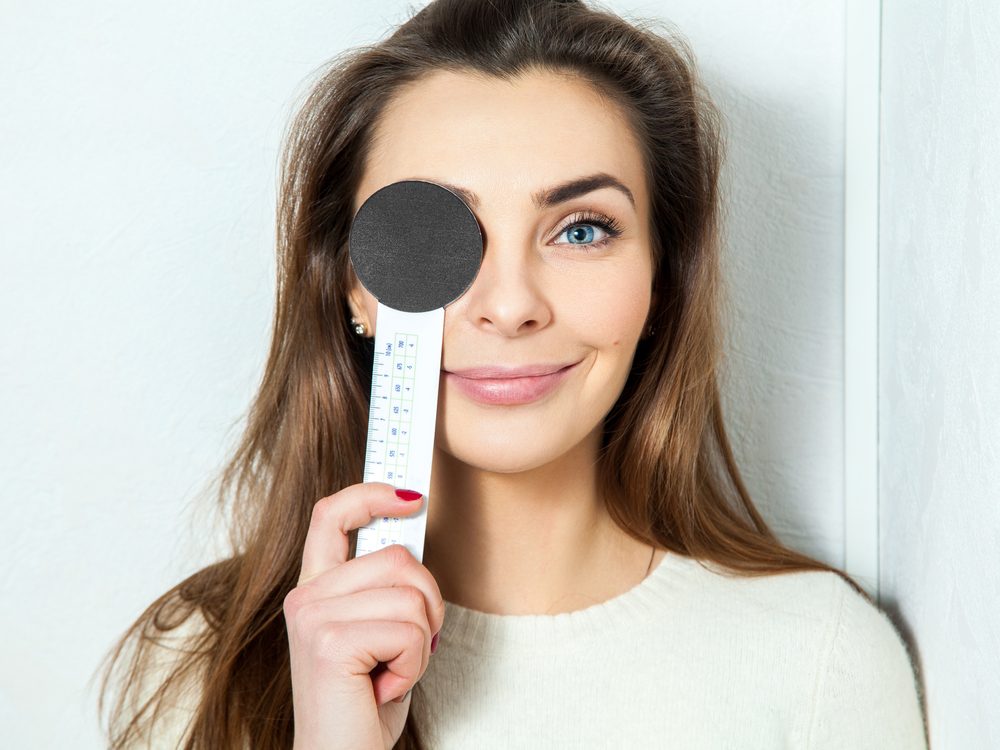
4. Vision loss associated with cognitive decline
A Stanford University study of more than 30,000 seniors aged 60 and older connected visual impairment with poorer cognitive function. While correlation doesn’t prove causation, it makes sense that less visual stimulation could lead to less engagement with the world and, ultimately, a more sluggish mind. Health authorities recommend that elderly people get eye exams every one to two years to pinpoint treatable problems, regardless of whether they are having sight issues. It may reduce the likelihood of dementia and definitely improves quality of life.
Check out these six foods that improve your eyesight.

5. Perfectionism can be deadly
Perfectionism brings with it a greater risk of suicidal thoughts and attempts, according to a meta-analysis from several Canadian universities. Both an internal drive to achieve an ideal and perceived pressure from outside sources—family, bosses, social norms—were shown to be potentially dangerous. If you’re struggling, don’t let the desire to present a flawless facade to the world prevent you from seeking assistance. A psychologist could help you overcome perfectionism and the chronic stress it entails.
Watch out for these eight signs you could have high functioning depression.

6. Hot flashes may signal diabetes risk
Traditionally viewed as a mere inconvenience, hot flashes—especially frequent and severe ones—have been connected in recent years with vascular factors that increase the risk of heart disease. Now, research published in Menopause suggests they also reflect a heightened diabetes risk. One-third of the 150,007 participating post-menopausal women reported having experienced hot flashes or night sweats, and this group was 18 per cent more likely to develop diabetes. Menopause is a great time to adopt a heart-friendly diet, stop smoking, exercise regularly and avoid excess alcohol. These changes will diminish hot flashes and improve longer-term health.
Beware of these 10 silent signs you might have diabetes.
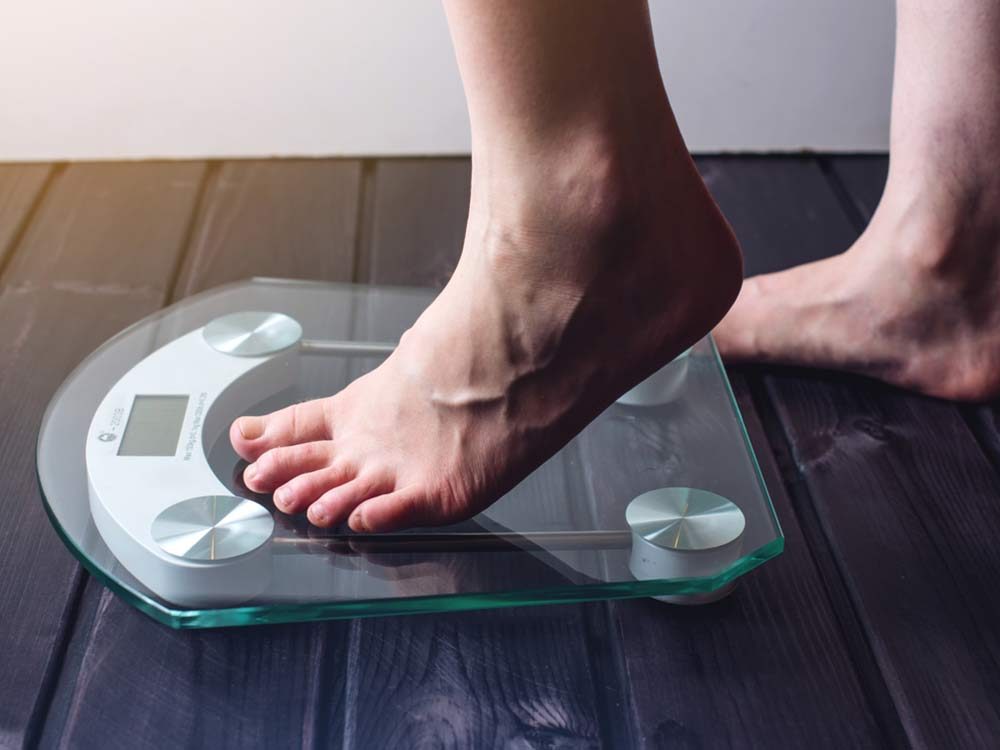
7. Shedding pounds can lead to same for partner
Working toward a healthy weight may benefit not only you but also your better half, suggests a recent American study that tracked 130 couples for six months. One person in each pair was actively trying to shed pounds. Their significant others, who weren’t making an intentional effort, nevertheless stood a one-in-three chance of losing three per cent or more of their body mass—a modest yet meaningful change. The lead author described this as a “weight-loss ripple effect,” explaining that our partners’ lifestyle habits tend to rub off on us.
Here are 50 ways to lose weight without exercise.
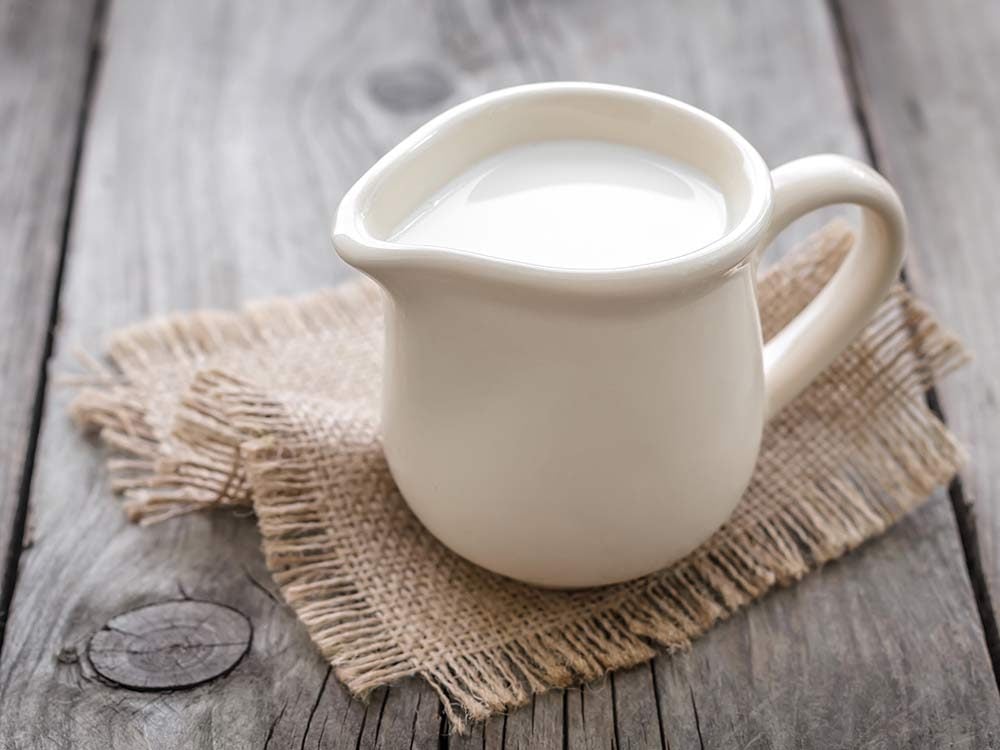
8. Plant-based milks not all equal
Cow’s milk is nutritious for those who can digest it properly, but around 65 per cent of adults cannot. Enter plant-based milks, each variety with its own pros and cons. Scientists from McGill University in Montreal compared the unsweetened versions of soy, almond, coconut and rice milks and concluded that soy milk offers the most nutritional value. In addition to a balanced blend of the three macronutrients—carbs, proteins, and fats—soy also contains isoflavones, compounds that may help prevent hormone-related cancers by binding with estrogen receptors.

9. Herbal remedies can clash with prescriptions
Just because a product is “natural,” doesn’t mean it’s always safe, according to a review conducted in South Africa and featured in the British Journal of Clinical Pharmacology in January. By studying the medical literature published since 2001, the researchers found 44 possible incidents of adverse drug-herb interactions; resulting problems included liver damage, kidney damage and bleeding. One man drowned because a ginkgo supplement inhibited his anti-seizure medication. The key point: when you get a new prescription, tell the doctor or pharmacist about everything else you’re taking.
Don’t miss these 17 medication mistakes that could make you sick.
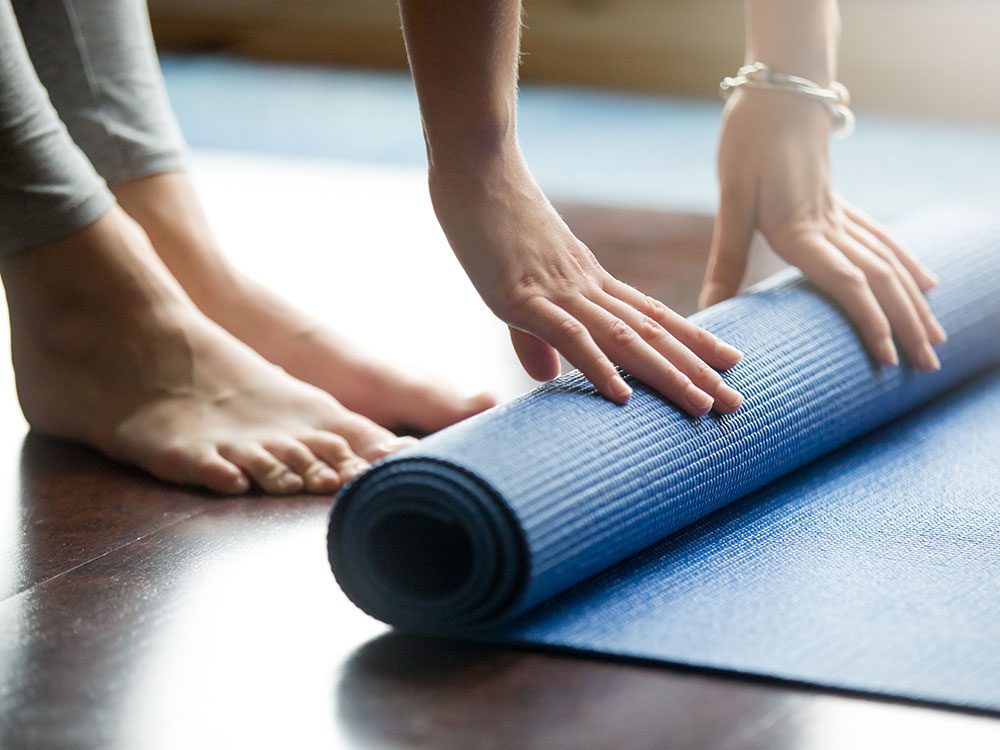
10. Getting fit is beneficial, even without weight loss
To see whether the concept of “fat but fit” is backed by science, researchers in Denmark recorded the inflammatory markers of more than 11,000 volunteers. (Inflammation contributes to heart disease, cancers and type 2 diabetes.) Subjects with better heart and lung function, as measured by an exercise test, were likely to have less inflammation and less fat concentrated around the waist (a symptom of metabolic disorder)—even if they were obese. This suggests that although extra body weight and poor fitness typically go hand in hand, regular exercise can lead to better metabolic health, regardless of how many pounds are lost in the process.

11. Writing a to-do list may promote sleep
There are two schools of thought regarding writing a to-do list at bedtime. One theory says it helps you offload your worries about unfinished tasks and go to sleep. The other theory suggests it makes you focus more on your upcoming duties, keeping your mind racing. To put this question to bed, neuroscientists in Texas conducted an experiment in a sleep lab, with a control group of subjects who wrote about completed tasks rather than future ones. On average, the participants who recorded their to-dos nodded off more quickly.
Don’t miss these 37 stress management tips from the experts.

12. Ocean swimming can be a health risk
Despite ongoing efforts to clean up coastal waters, ocean pollution levels remain high enough to pose certain health risks to swimmers, according to a systematic review of studies from developed countries including Australia, the U.K., the U.S. and Norway. Namely, earaches, stomach aches and diarrhea were more common among people who spent time in the sea. Since they’re not usually serious, these problems are probably a risk worth taking to get exercise, enjoyment, fresh air and a sense of connection with nature.
These are the 13 secrets lifeguards wish you knew.
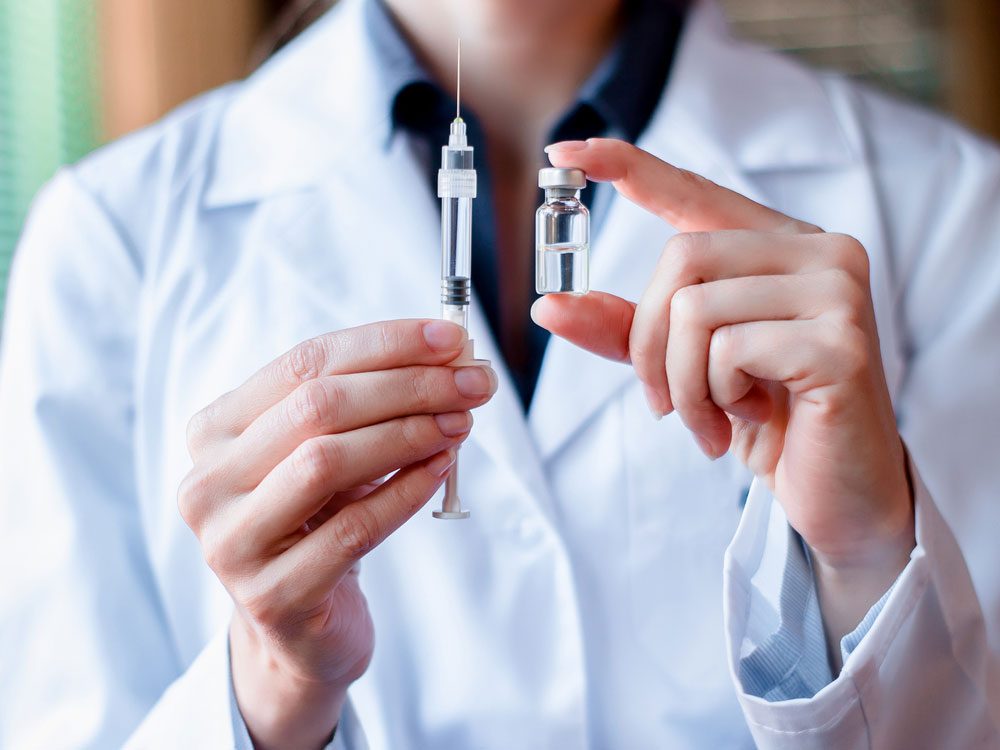
13. New shingles vaccine improves protection
Because the immune system weakens with age, seniors are extra susceptible to shingles and postherpetic neuralgia, a burning pain that can last long after the blistering rash has faded. A new vaccine called Shingrix, approved in Europe in March 2018, brings unprecedented protection for older people, preventing at least 90 per cent of expected shingles cases for all age groups. By comparison, the only other existing shingles vaccine is 64 per cent effective for ages 60 to 69, 41 per cent effective for 70 to 79 and 18 per cent effective for 80 and up.
Learn more about these common skin conditions—and how to treat them.
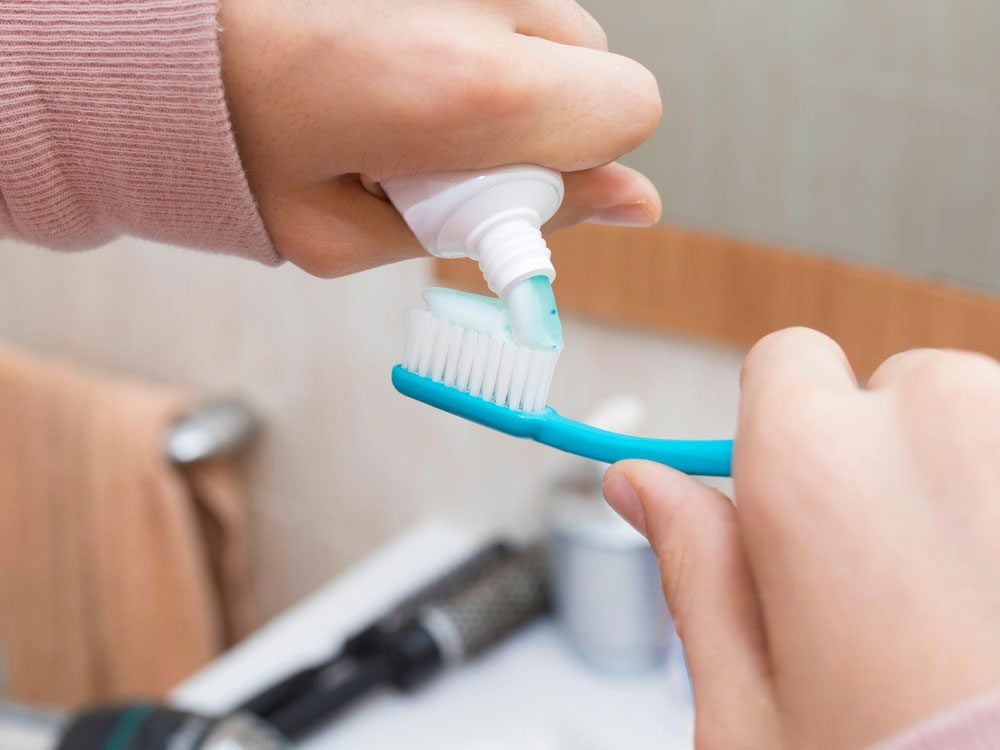
14. Toothpaste alone won’t fix dental hypersensitivity
Many toothpastes claim to treat sensitive teeth, but it’s not quite so simple, concluded a recent experiment from Switzerland’s University of Bern. A tooth grows sensitive when its protective enamel erodes, exposing dentin, the layer right above the nerves. The researchers tested eight “anti-erosive” or “desensitizing” products and found that, despite these claims, they all caused enamel wear, just like regular toothpastes. A particularly abrasive toothpaste could lead to extra erosion, they said.
Here are 11 home remedies for a toothache.
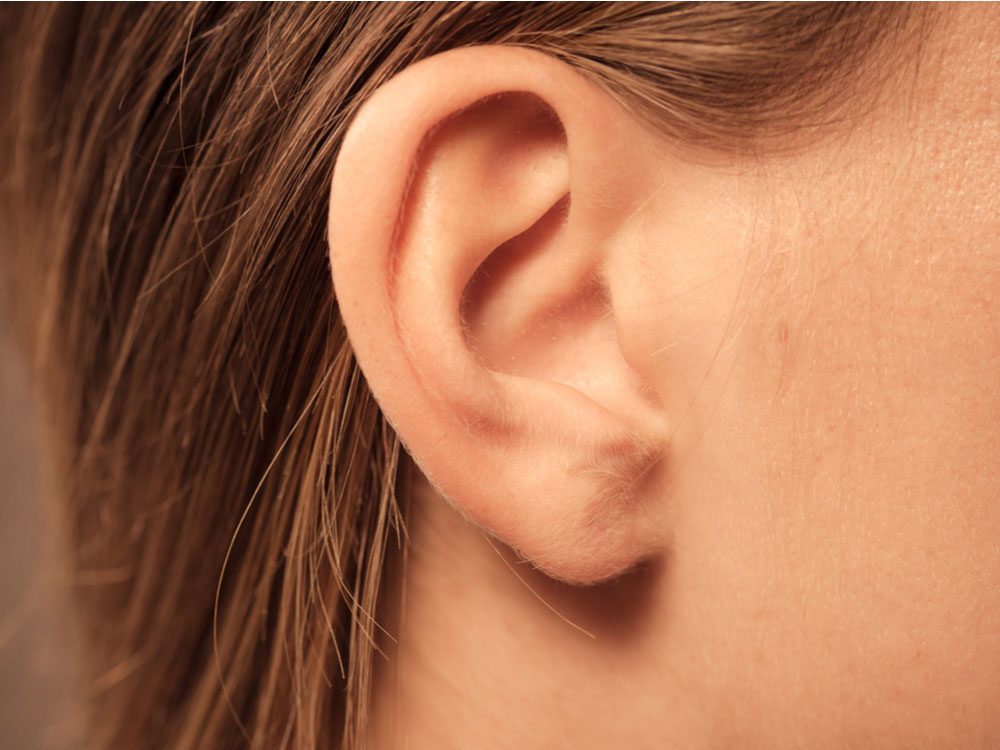
15. Poor hearing doubles injury risk
In a health survey of over 230 million Americans, those who said they had a lot of trouble hearing were roughly twice as likely to get hurt in an accident. Some of the mishaps most strongly associated with hearing loss were those that happened during recreational activities (as opposed to driving or while at work). Difficulty hearing cars while you’re out cycling or walking could put you in harm’s way, for instance, as could an inability to fully absorb safety advice from an activity instructor. People may let their guard down during their leisure time, the senior researcher speculated, adding that hearing loss is often treatable and not an inevitable part of aging.
Next, check out these 42 strange symptoms that can signal a serious disease.